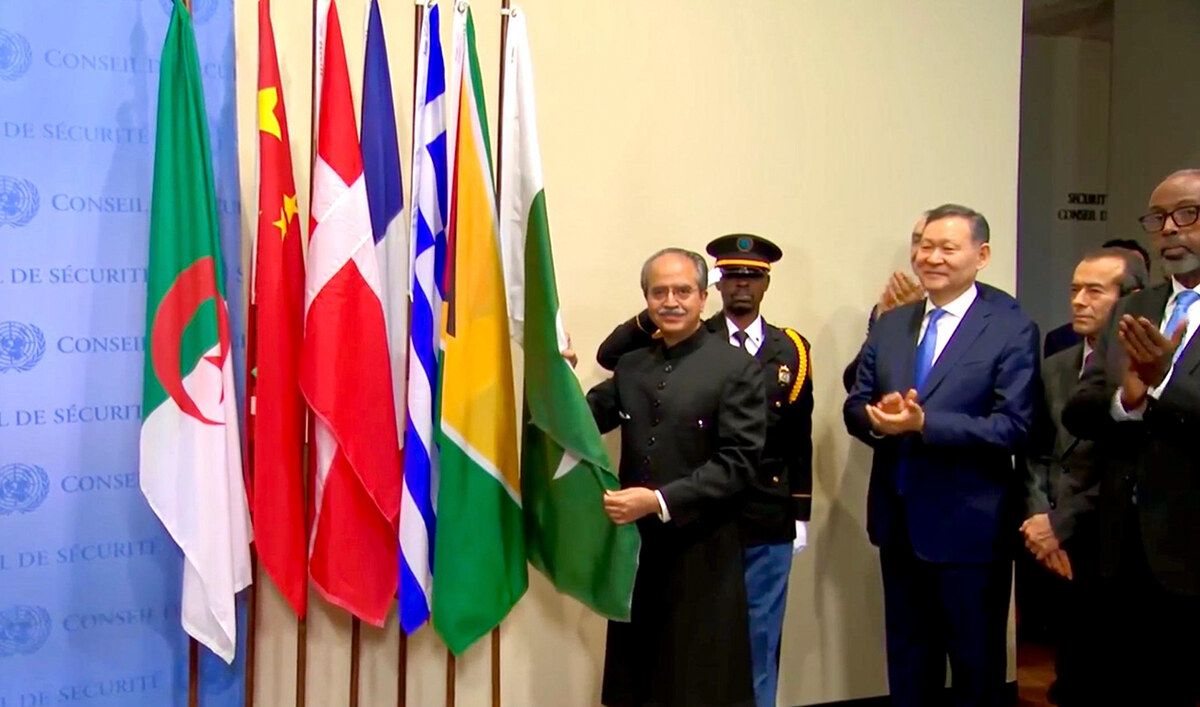ISLAMABAD: The government is planning to tap indigenous renewable energy resources, including wind, solar and bagasse, to increase the country’s installed energy generation capacity to meet soaring domestic and industrial demand while reducing its dependence on the costly imported fuel amid an ongoing economic crisis, confirmed an official on Saturday.
The South Asian nation’s reliance on the imported fuel for its energy needs has hit its fragile economy hard since its energy import bill reached $23.3 billion in last fiscal year. The country is struggling to stave off a balance of payments crisis, with its foreign exchange reserves of $4.2 billion barely enough to cover imports of about three weeks.
Amid the economic crunch and a struggle to revive a stalled $7 billion International Monetary Fund (IMF) bailout program, the country has decided to increase its installed energy capacity of more than 77 percent through indigenous resources to save precious foreign exchange used to import the fuel for energy.
“We are working hard to drastically reduce our reliance on the imported fuel for energy by switching to indigenous resources of solar, wind, coal and bagasse by 2031,” Masroor Khan, additional director at the National Electric Power Regulatory Authority (NEPRA), told Arab News.
Under the Indicative Generation Capacity Expansion Plan (IGCEP) 2022-31, the country is aiming to use more than 80 percent of the indigenous energy resources.
“There is an emphasis to develop and utilize local coal which will result in increasing its contribution to around seven percent by 2031,” Khan said, adding that the regulatory authority believed Pakistan’s dependence on imported fuel would drastically reduce from current 45 percent to less than 23 percent in 2031.
NEPRA has also estimated an investment of about $53 billion to manage power generation, infrastructure construction, operations and maintenance of its new projects.
It is estimated that peak demand of the system in 2031 will be 41,338 megawatts against 26,945 megawatts in 2022 while the total energy consumption in 2031 is expected to reach 228,505 Gigawatt hours (GWh), against 153,866 GWh in 2022.
The official data show the current installed capacity of the system is 41,268 megawatts which will become 68,667 megawatts in the year 2031. This will include the existing capacity of the system (41,268 megawatts) with already committed projects of 14,268 megawatts. In addition to that, there will be 3,330 megawatts available through net-metering and 17,969 megawatts from candidate projects.
The IGCEP has considered a total of 42 committed projects of various technologies, including Hydel (8,192 MW), local coal (2,280 MW), imported coal (660 MW), regassified liquefied natural gas (1,263 MW) and variable renewable energy, including wind (100 MW), solar (430 MW) and bagasse (32 MW).
“The work on all these projects is underway and we are hopeful to achieve the target,” Khan said. “Once these projects get operational, we will be saving billions of dollars in energy import bill besides ensuring smooth and cheap supply of power to our consumers.”
Energy experts have lauded the plan, hoping it would help attract local and foreign investment in the renewable energy projects and reduce the country’s dependence on imported fuel.
“It is a good document on the paper and an ambitious proposal, though the investors are looking for consistency in the plan to go ahead with their planned solar and wind projects,” Mustafa Amjad, an energy expert with an Islamabad-based think-tank Renewables First, told Arab News.
He said the energy generation from solar and wind projects would cost around three to four cents per kilowatt hour against seven to eight cents per kilowatt hour from the imported fuel, besides an operational and maintenance cost of the power generation plants.
“The consumers are currently paying around 14 cents per kilowatt hour which is comparatively too high,” he said. “This cost can significantly go down with the increased electricity generation from solar and wind plants, besides bringing down the imported fuel bill.”
Afia Malik, a senior researcher at the Pakistan Institute of Development Economics, said the country should first revisit its agreements with Independent Power Producers (IPPs) to reduce the burden of capacity payments and ditch costly electricity produced by fossil fuels.
“The electricity generation alone from the renewable resources is not a solution to our problems unless we invest in our transmission capacity to transfer the generation to our consumers,” she told Arab News.
“We are stuck in a vicious cycle and it is not easy to get rid of our fuel import bill just by drastically switching to the indigenous resources without proper planning and strategy for transmission and consumption of this energy,” she added.




















